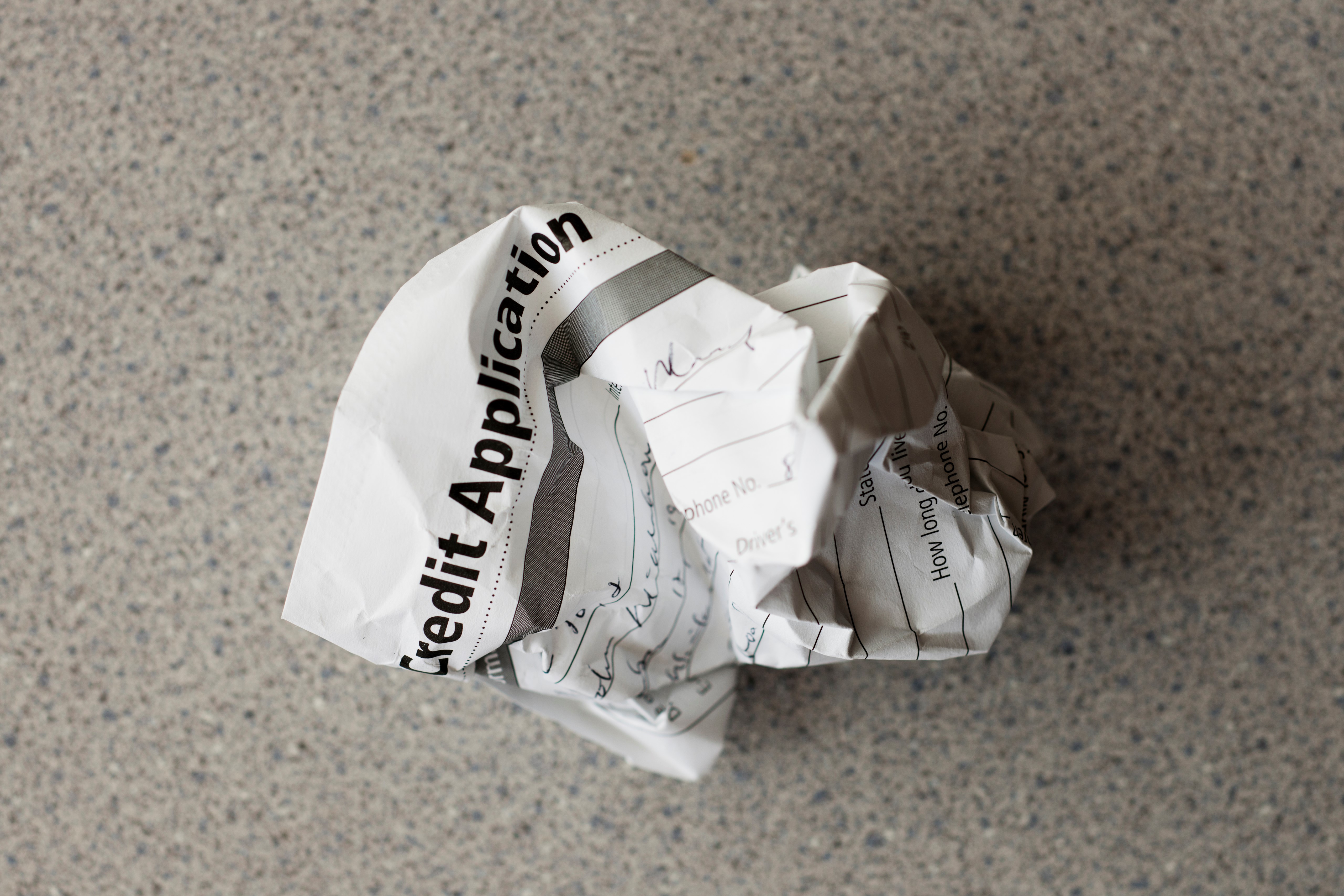How does debt settlement hurt your credit?
The chance to reduce debt is appealing, but when you realize how debt settlement hurts your credit, you may want to think twice.

Sign up to receive the latest news, reviews, buying guides and deals direct to your inbox
You are now subscribed
Your newsletter sign-up was successful
Debt settlement might be an avenue to explore if you're struggling beneath unmanageable debt and you can't get on top of it. But before diving in to find best debt settlement companies to help you out, there are some big consequences to consider. Particularly when it comes to your credit score.
Debt settlement is the process of “settling” your debt for less than you currently owe, either agreeing to repay it in a lump sum or through a new (ideally more affordable) repayment plan, or sometimes via a debt discharge. So, how much does debt settlement hurt your credit? Let's take a look...
What does debt settlement involve?
The process of debt settlement negotiation is typically conducted via a third party – you can, of course, attempt to negotiate with your creditors yourself, though many find more success if they go through companies that specialize in this area – and you’ll be expected to pay high fees for their service.
It’s by no means the easy option either. Aside from the high costs involved, the process of debt settlement can be prolonged (particularly if you have a lot of creditors or very large debts), during which time you’ll be advised to stop paying the original creditors to encourage them to settle.
If the settlement is agreed and the amount you owe is reduced, you may also find that you need to pay tax on the forgiven amount, but perhaps the biggest downside to debt settlement is the impact on your credit score.

Will debt settlement hurt my credit score?
Yes, undoubtedly. Debt settlement can have a significant negative impact on your credit score in two potential ways. The main reason is that the amount you owe won’t be settled in full. Instead, it will be reported to credit bureaus as “paid – settled”, which indicates that you haven’t kept within your original credit agreement to pay back the full amount that was loaned to you.
This will understandably lead to a dent in your credit score, and will likely make mortgage lenders, credit card providers and the companies behind the best personal loans online wary about lending to you in the future, as you’ve proven yourself to be a credit risk.
Sign up to receive the latest news, reviews, buying guides and deals direct to your inbox
The second potential hit to your score comes from the fact that during the negotiation period, you normally won’t be making payments to your creditors – you’ll be paying into a separate settlement account instead, with the third party making the appropriate payment(s) to settle the debt when an agreement has been reached.
Again, this will show up on your credit report, with late and missed payments having a direct impact on your score and marking the account as delinquent.
How can I fix my credit score after settlement?
Any settled account will still stay on your credit report – and therefore be visible to lenders – for seven years, and scores can decline by as much as 100 points (or more) for each settled account. That’s a significant drop, and it could have a huge impact on whether or not you’ll be accepted for credit in the future. That said, settled debts will have less of an impact over time; there are a lot of other factors that go into a credit score, and there are things you can do in order to speed up the process too.
One of the most important steps is to make absolutely certain that you keep up with all other repayments, and to keep your credit utilization ratio below the magic number of 30%, too. If you can avoid applying for additional credit for a certain length of time that could help by not creating more hard inquiries on your profile, and will have a secondary benefit of keeping your debt-to-income ratio at acceptable levels as well. You may even want to consult the experts to bring your score back up to scratch, which is where the best credit repair services can come in. Yet ultimately you’ll have to wait until the settled account drops off your report, which will always be the point at which your financial status improves the most.

Is reducing my debt burden worth it?
The stark impact on credit profiles means that debt settlement won’t be the right solution for everyone, particularly if you plan to apply for a large amount of credit in the near future. It should only ever be used as a method of last resort once all other options have been exhausted, such as the best debt consolidation companies, or by opting for a personal loan to arrange things yourself. These options won’t reduce the amount you owe, but will have far less of a negative impact on your credit report, so should always be considered. Find out more about debt settlement vs. debt consolidation here.
Yet for some, the chance to reduce your debt burden and head back towards a solid financial footing could be worth the credit score hit. In particular, a case may potentially be made if late payments have rendered your score woefully low already or if debt collection is on the horizon, which could have an even greater impact on credit profiles. Although you should definitely avoid if you have any near-term aspirations to secure finance, the negative effect of settling won’t last forever, either, and it’s possible to return your score to acceptable levels with careful management of your finances. Just be fully aware of all the risks involved and think very carefully is debt settlement worth it for you.
Leanne has been writing professionally for well over a decade, with the majority of that time spent at a financial publishing company where she wrote countless articles across the personal finance space. Now freelancing, she still predominantly writes about finance, with bylines in both national and trade publications. In her spare time Leanne likes to read, catch up on Netflix and sleep, though her toddler rarely allows such things.

